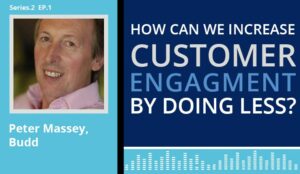In this monthly column, Peter Massey will explore 9 things he has found surprising in business. Starting with the power of “I don’t know”.
The Power of “I Don’t Know”
Find the Survival Experts
Do you have quiet members in your team? I worked for many years with a 6’3” silent type. I used to take sandwiches to our review sessions and eat them to make me wait for him to speak. Eventually when he did, it always made sense.
This colleague was one of the team when we first played a survival game. You know the sort of thing: plane crashes in the desert and you have 15 objects to rank in order of importance to your survival.
Everyone rushes around and dies. They read out the optimal priorities for your survival and you do a Homer Simpson “Doh!”
David whispered, “I told you so” under his breath, but we caught it…… “What do you mean?”
“I tried to tell you, but you wouldn’t listen: I’ve played the game before so I knew the answers.” An even louder “Doh!” But a lesson learned.

Find the survival expert, someone who has done it before, before you embark on invention.
In any group when you tackle a problem, the lesson was to find the survival expert, someone who has done it before, before you embark on invention. That requires everyone else to admit they don’t know the answers so the survival expert can be fully heard.
Je Ne Sais Pas, Ich Weiss Nicht, Non Lo So……
Have you ever worked in another language? You need to be given much more space to enter or take part in a conversation. And it’s enormously useful when the person chairing asks for your input. You can be heard. That’s really motivating at a human level.
It requires the chairperson to adopt a full “ I don’t know” mindset towards the problem and resolution under discussion. To lead by listening rather than by knowing the answers. To search in the group for what they know.
Suspend Belief
How many years did it take Einstein to believe his own theory of relativity?
“I don’t know” is the basis of the scientific method, creating a hypothesis and its proof or contradiction in the evidence or data you gather. One has to have a basis for guessing what happens and why – the hypothesis or “your idea” or “my theory”.
You also have to have an open mind about the data and evidence you gather to examine that theory. Otherwise you prove what you think you “know”. This confirmation bias will mean you weight the data that agrees with you and ignore or underweight contradictory information. And come to a false conclusion. Adopting the mindset of “I don’t know” makes a far more insightful person.
BTW, it took Einstein 14 years. He kept his mind open to all the ideas and evidence.
Testing Testing
There’s no substitute for seeing what customers and people actually do.
Ever wonder why some websites, chatbots and IVRs are brilliant and some clunky? “I don’t know” is the key. It is the basis of understanding customer experience or user experience.
You can design with great methods and experience until you’re blue in the face, but that experience tells you you’re always wrong in some way. There’s no substitute for seeing what customers and people actually do. Testing.
That requires time and effort and money, So it’s easy to skip or fail to continually repeat. Which is why many companies give poor experiences. Those asking the questions and providing the answers have to start with a mindset of “I don’t know – let’s see what people actually do.”
Be Brave
Not everyone gets the power of “I don’t know”. In fact, many managers or businesses have a culture of total preparation so they can’t be asked a question to which they answer “I don’t know”.

Peter Massey
But businesses which want to move faster, make the most of their people and their digital customers might benefit from adopting the “I don’t know” mindset. Humbler, more open-minded, better listening.
It starts with being brave and saying “I don’t know’ out loud in your next board meeting. Watch what happens.
Written by: Peter Massey at Budd
Read these articles next for more valuable insights and suggestions:
- Why Can’t Everyone Think Backwards?
- Is Age Little More Than a Number?
- Why Does Sight, Smell, and Sound Matter in the Contact Centre?
- Why Are So Many Intelligent CEOs Apparently Short Sighted?
- Talking Point: How to Overcome Resistance to New Ideas
- How to Create the Case for Performance Change
Author: Peter Massey
Published On: 6th Apr 2022 - Last modified: 9th Nov 2023
Read more about - Call Centre Management, Editor's Picks, Employee Engagement, Knowledge Management, Peter Massey
















